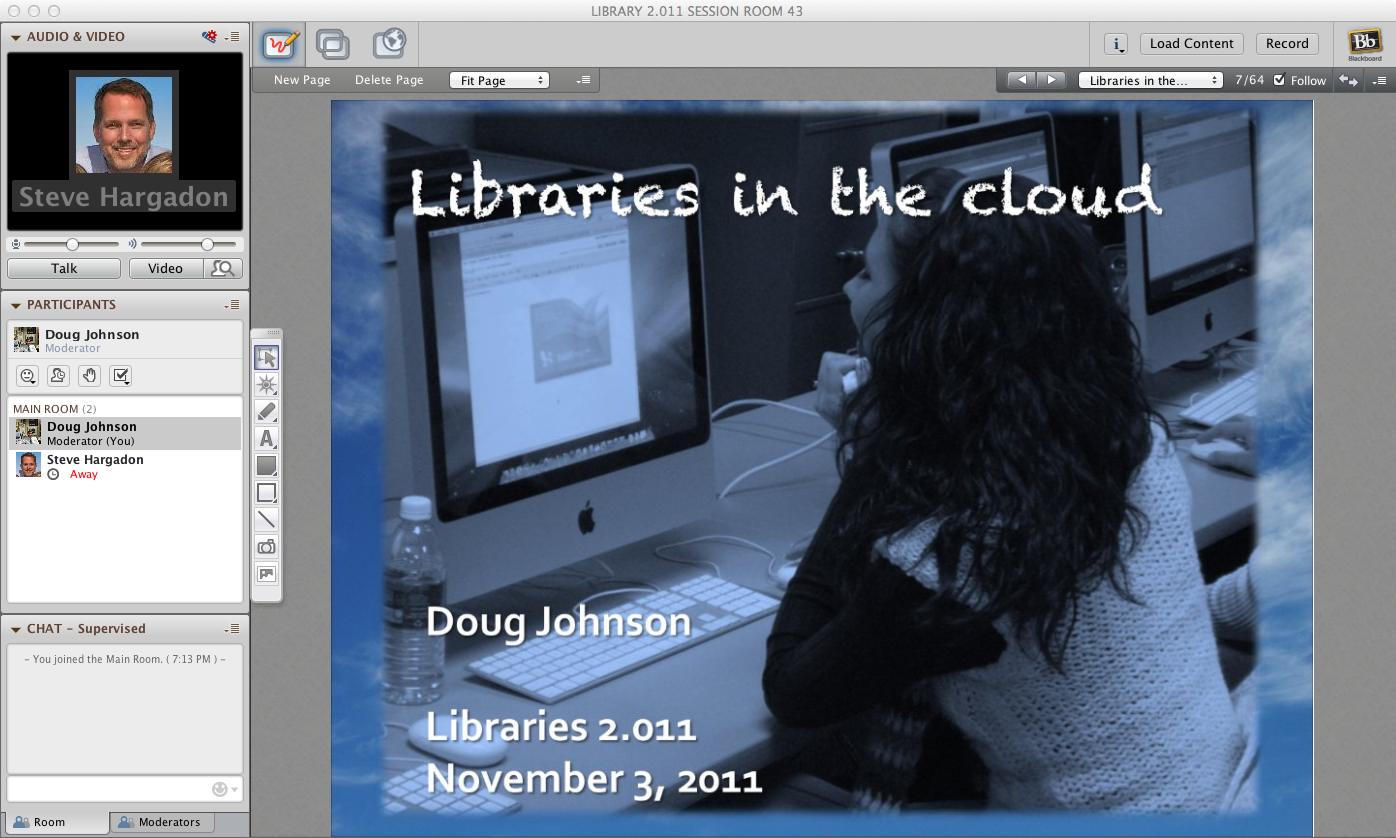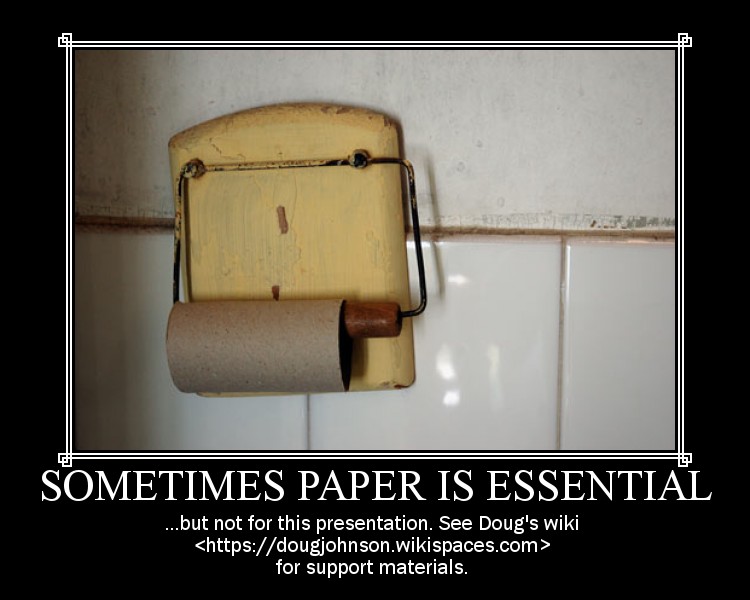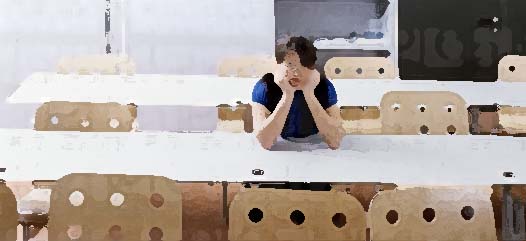Opting out of "presenting" online
 Thursday, November 3, 2011 at 07:31PM
Thursday, November 3, 2011 at 07:31PM If at first you don't succeed, try, try again. Then quit. There's no point in being a damn fool about it.
W. C. Fields

I gave two talks for Libraries 2.0 yesterday and went to bed feeling incompetent. While a feeling of inadequacy is not exactly a rare occurrence in my life, feeling like I'd done a poor job as a presenter is pretty darned rare.
I'm still not quite sure why things didn't feel right. The evening talk was essentially the same one I gave (live) at AASL last Saturday that went well. I've done webinars before that felt positive and useful to participants. The Library 2.0 event itself was well organized.
There were some technical challenges, epecially in the evening session. I could not see the chat window and needed to rely on my moderator (who seemed to often be otherwise occupied) to relay comments and questions to me. No one attending seemed to use the hand raise, smiley/frowny face icons during the talk. I could load only a limited number of slides to the Blackboard platform. And I have to admit, by 8PM my energy level is not what it is at 8AM which may have been the major problem.
I am tempted to just take a pledge never to attempt another webinar - as presenter, anyway. It doesn't fit my style, temperament, abilities, etc. Just take Fields's advice above and stop being a damn fool about this one thing.
The bigger question is "Do we let all educators "opt out" of a method or tool that does not seem to work with their teaching style? I am tempted to say yes, but I am curious what reader's thoughts might be.









